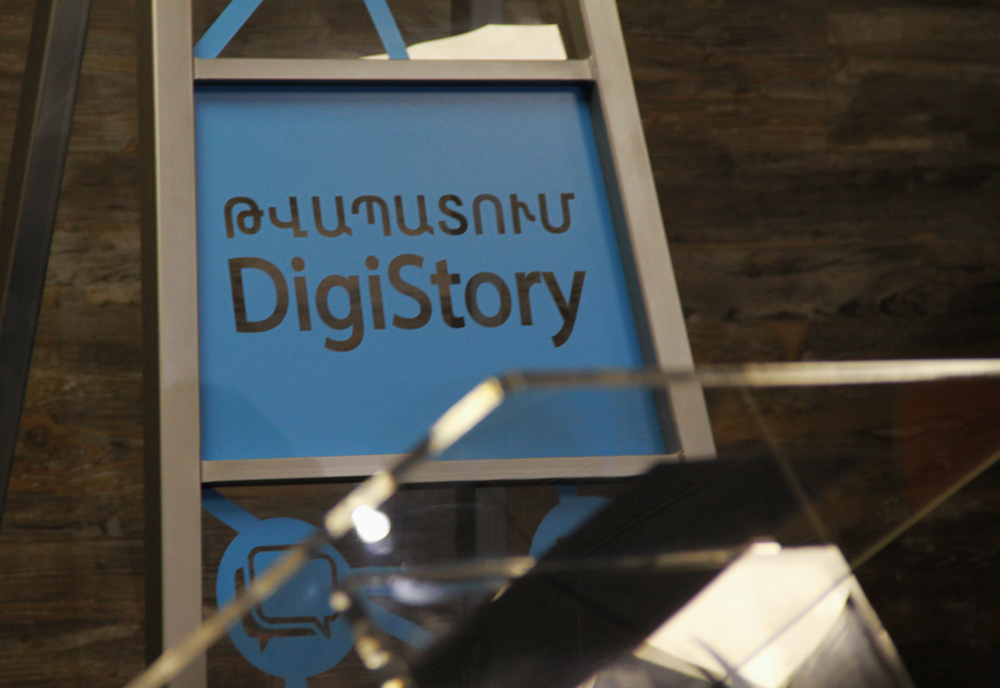
“The role of journalists in changing the world has to be the top priority, since journalists’ eyes are sharp and they’re farsighted.They see the good and the bad, and report on it,” says head of Basen, the rural community in Shirak marz (province), Hamlet Petrosyan, who was a winner in the Homo Agendi category of the 2016 Tvapatum (“DigiStory”) Awards organized by the Media Initiatives Center [also responsible for this site].
“In our work, we can’t see our shortcomings and advantages, but journalists see everything. Always accurate, uncompromising, fighting, they also show the ruling authorities their shortcomings. Change must start with journalists,” he adds.
Journalists continue to describe changes, and Tvapatum continues to recognize their work. A large number of news stories — 131 stories from 76 journalists from 35 media outlets — were presented at the 2016 Tvapatum Awards, which aims to stimulate coverage of the issues and problems of changes in Armenia, local self-governance, accountable and transparence governance, and social issues.
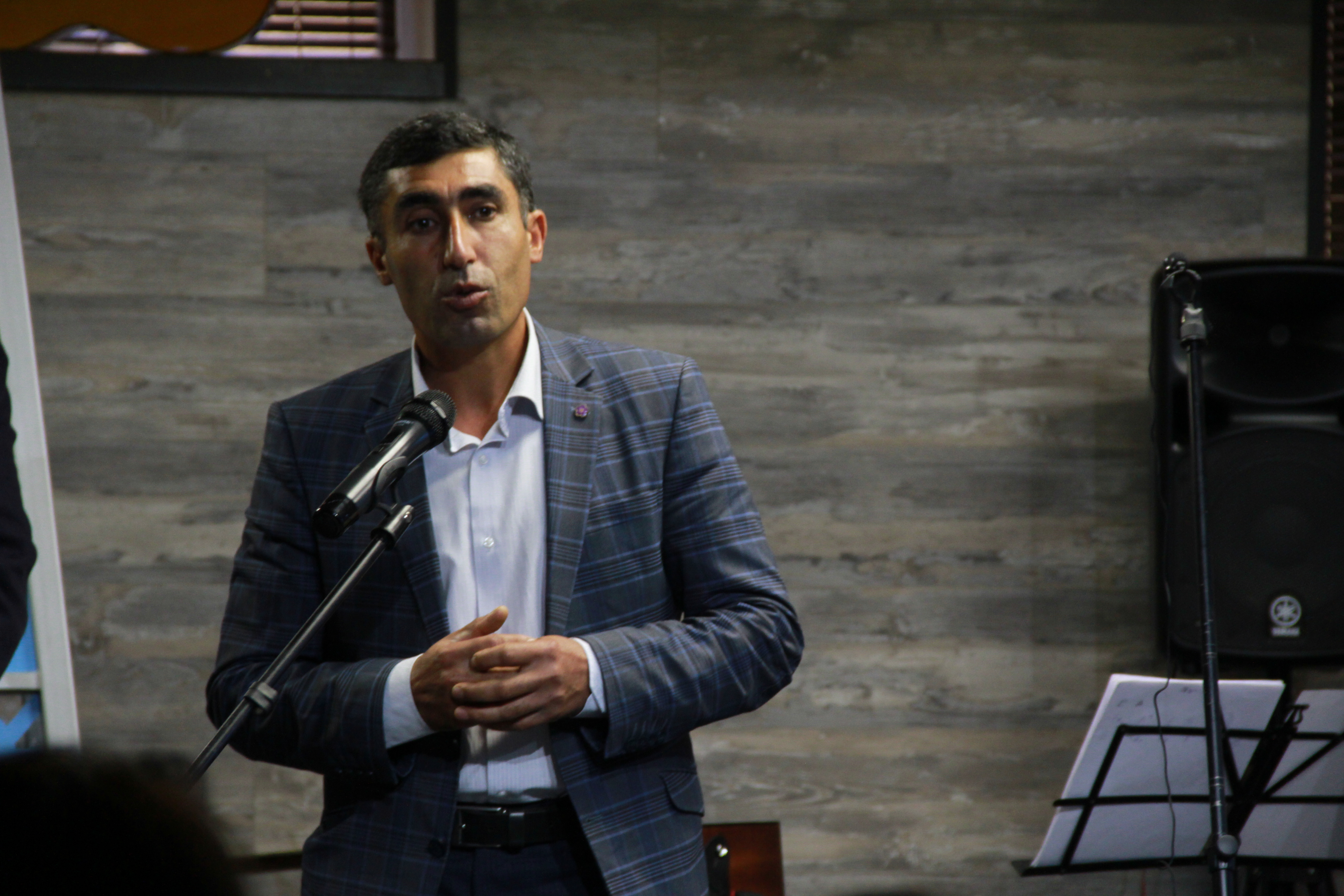
“We try to talk about changes happening in Armenia through quality content. I’m not talking about reforms because through journalists’ pieces the public only has to decide whether they’re reforms or changes,” says Media Initiatives Center Managing Director Nouneh Sargsyan.
The jury comprised of media experts discussed at length the pieces submitted to the four categories of the competition. In assessing the entries, taken into account were the journalistic work, competition topics, creative approach, and use of new media tools. In the jury’s opinion, compared to last year, this year’s entries were of better quality, but there’s still room for improvement.
Just as last year, Hetq was the winner in the Observer: Investigative Journalism category, with two stories, “Mihran Poghosyan: The Armenian General Who Mastered the Ins and Outs of Panama’s Offshore Zone” and “How to Deceive the Public: Armenia’s Ministry of Culture’s ‘Book World’ Project A Land Grab Scheme” [both published originally in Armenian], the authors of which are Kristine Aghalaryan, Edik Baghdasaryan, and Marine Madatyan.
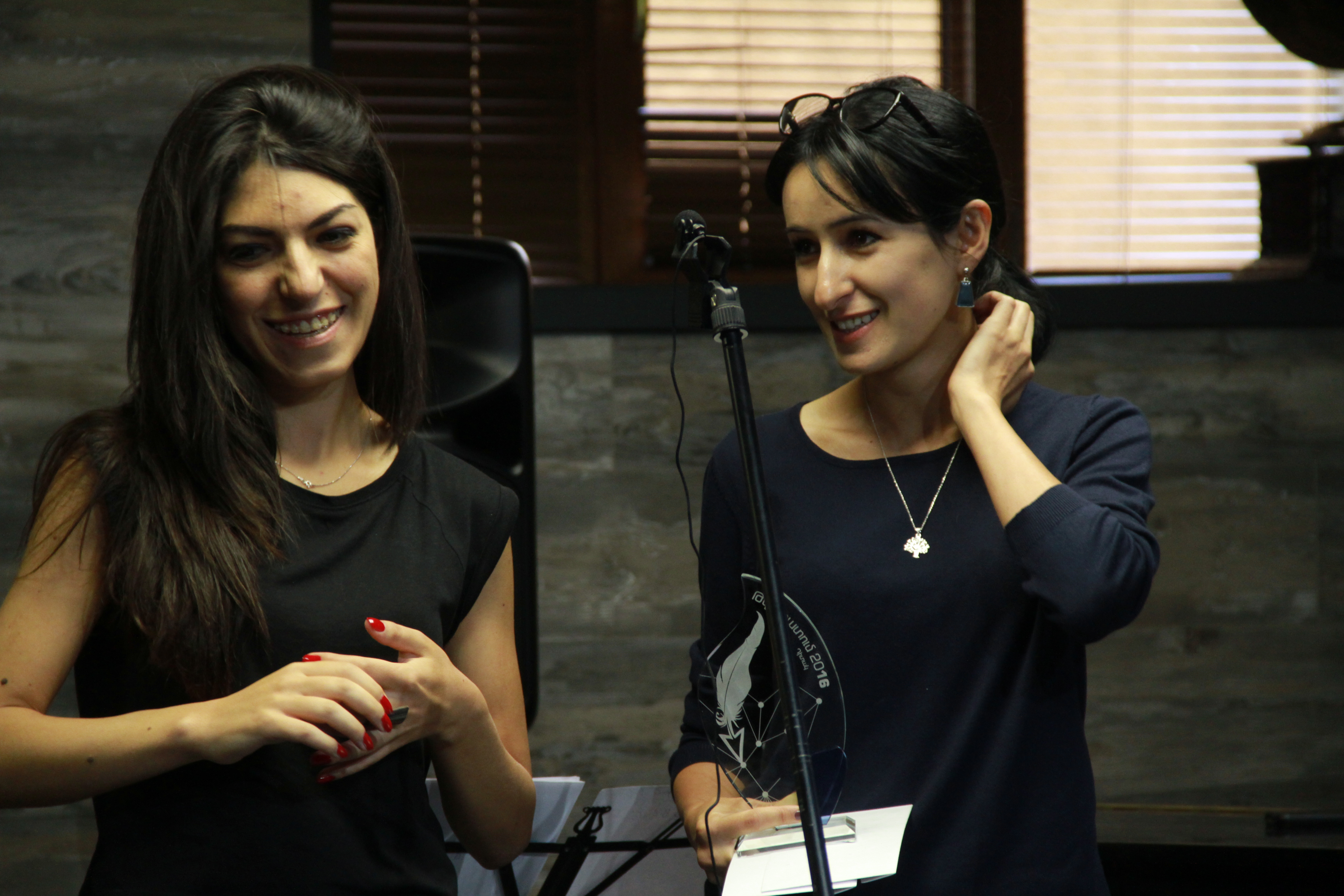
“For me, the Tvapatum contest is very important, and it’s very inspiring to receive an award for the second time. Before the awards ceremony, I participated also in the workshop, where one of the jury members said even the best pieces could’ve been better presented. I agree. This is a gauge for me, and next year I’ll try to use new journalism tools to make my story more accessible and attract a larger audience,” says Hetq journalist Marine Madatyan.
Hetq journalist Grisha Balasanyan won in the Best Use of Media 3.0 Technology category, for his multimedia story “Precious Gifts of Deputies” [original in Armenian].
The award in the Re-information: Best Use of Reforms category was given to Anush Muradyan for the piece “Agricultural Cooperatives: Who Needs a Farmers’ Union?”, which she prepared for the Hatuk Tghtakits (“Special Correspondent”) series on AR TV.
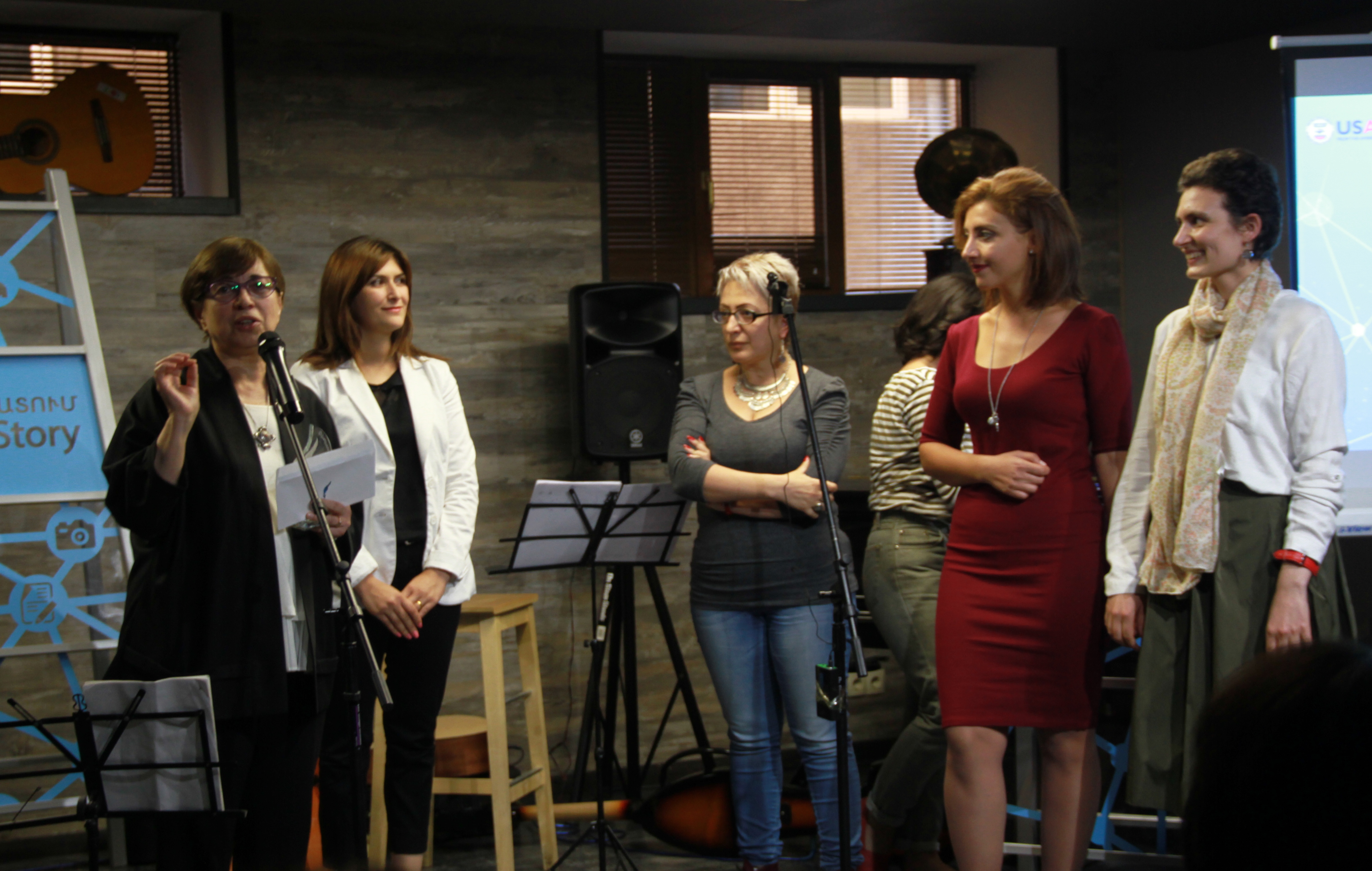
Recognized as the winner in the Homo Agendi category was not only the protagonist of the CivilNet video “Green Revolution” [“The Greenest Community of Basen” in English], Hamlet Petrosyan, but also the creator of the piece, Gohar Ter-Hakobyan.
For revealing the image of a hero, an award was given to Public TV of Armenia journalist Lilit Barseghyan, for the video “Fighting Cancer” featuring Ani Haykuni.
“Usually videos are filmed, shown once, and then stored away. And that’s it. But through this contest, people know more about both the topic and the protagonist. This means your audience is doubled several times. Tvapatum is a unique opportunity to become acquainted with the work of people in the industry and to feel appreciated,” says Barseghyan.
A special award for journalistic consistency was given to Yeranuhi Soghoyan for her series of articles titled “Gold, or Diseased Future from Amulsar?” [in Armenian only].
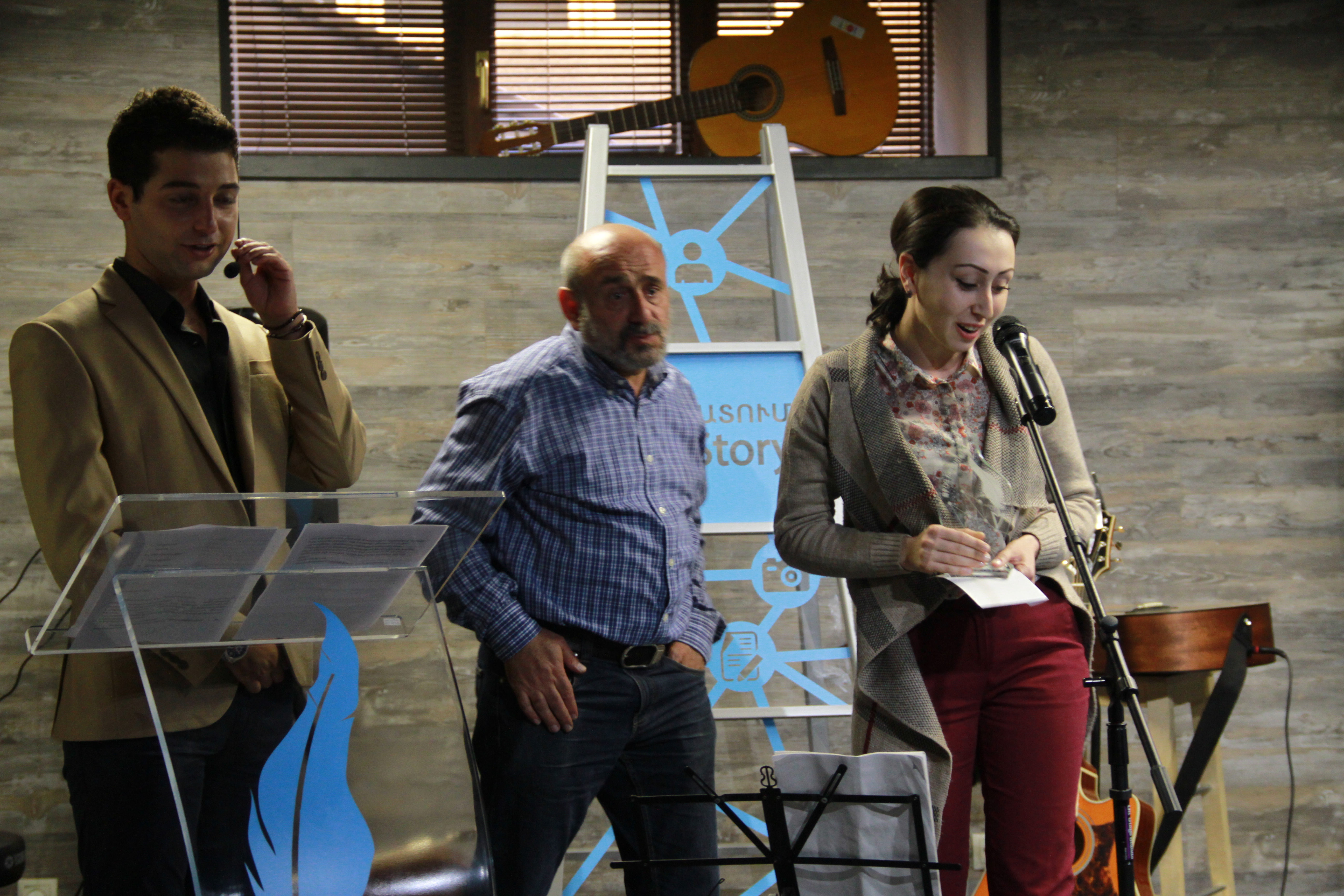
Author of the A1plus.am piece “The Alternative to the Children’s Home” [AM] Robert Ananyan and author of the Panorama.am piece “The Good Mother” [AM] Lala Ter-Ghazaryan received incentive awards.
Tvapatum supporter OSCE Office in Yerevan handed its special award to Arman Suleymanyan for his choice of protagonist in the piece “From 2016, Disability Is No Longer Contagious” [AM] published by CivilNet.
Readers will decide the winner of the I Vote: Audience Trust Award [see the 2015 winner here]. The top 20 entries selected by the jury in all categories will be put to a vote from October 1–31 on the contest website.
Tvapatum 2016 is organized with the support of the American people through the United States Agency for International Development (USAID) within the framework of the Media for Informed Civic Engagement project. Tvapatum is supported by the Organization for Security and Co-operation in Europe (OSCE) Office in Yerevan. The event’s main sponsor is Beeline. Tvapatum is implemented jointly by the Media Initiatives Center and Internews.
Anna Barseghyan
Photos by Sona Kocharyan


Add new comment
Comments by Media.am readers become public after moderation. We urge our readers not to leave anonymous comments. It’s always nice to know with whom one is speaking.
We do not publish comments that contain profanities, non-normative lexicon, personal attacks or threats. We do not publish comments that spread hate.